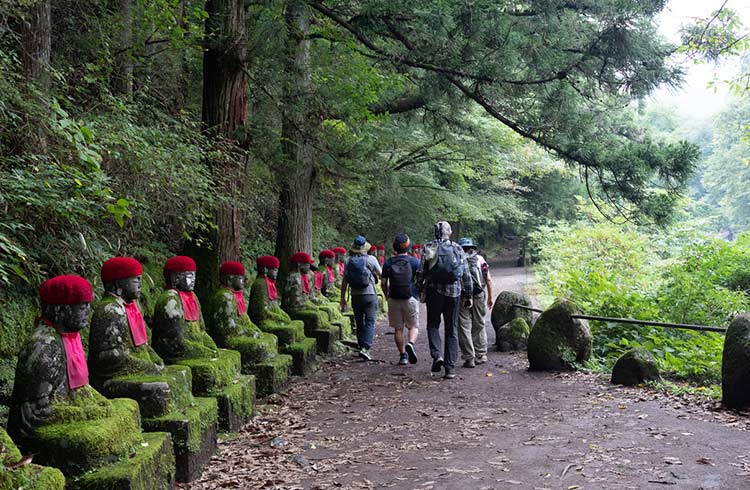10 Reasons Why You Should Take a Working Holiday
For the perpetual nomad, combining work and travel is the ideal situation that needs no selling. For others who think it might sound appealing, but still need that extra push, here are 10 benefits of a working holiday.
 Photo © Getty Images / Maskot
Photo © Getty Images / Maskot
- A working holiday visa lets you stay longer
- Working holidays are more affordable
- You can leave for your trip sooner
- You can try your hand at various trades
- You can give your holiday more structure
- A working holiday makes a good break
- You may make more local friends
- You gain a better cultural understanding
- It can build a better resume
- It offers a chance to assess a potential expat location
1. A working holiday visa lets you stay longer
A number of countries, including Australia, Canada, South Korea, and many EU countries, offer working holiday visas. In general, a working holiday visa grants you access to a country for a longer period of time than a standard tourist visa. In Australia, for example, the typical tourist visa is for three months, while a working holiday visa grants you country-roaming rights for 12.
Working holiday visas allow travelers to work in the country they’re visiting. There may be restrictions on how long each period of employment is, or the type of employment, and usually also the age and nationality of the person applying, among others. The main purpose of your visit must be tourism, rather than employment. But it’s a good option for the person that wants to stay in a country for as long as possible without needing to deal with exiting and entering multiple times for visa renewal.
The United States doesn’t offer a working holiday visa, but it does offer a J1 visa, which allows college and university students located outside the US to visit and work during their summer holidays. There’s also a longer program for au pairs.
Teaching English abroad is another popular way to stay in a country for an extended time and earn money while you’re there.
2. Working holidays are more affordable
With a working holiday visa, you can work as you go, meaning you won't necessarily go into debt while spending time abroad. Your method of travel may vary. Some prefer to travel up-front for several months and then spend the rest of the time working in one or two different locations. Others prefer to work for a month, travel for a month and then work for a month again. Either way, the travel is sustainable in the sense that you can keep refilling your travel funds with casual employment.
3. You can leave for your trip sooner
Without the need to save up thousands of dollars in advance, you can leave for overseas adventures sooner if you’re planning to work while abroad. If there’s one big downer when it comes to travel, it might be the idea that you can't do it because of the cost. A working holiday helps alleviate this issue.
4. You can try your hand at various trades
With a working holiday visa, you are basically given the opportunity to test out many types of jobs, and you may be in a position to accept ones that you normally wouldn't when at home. You never know what you might discover. Perhaps your perfect job is one where you're working on a cattle ranch or serving up drinks at a pub. Or maybe you learn that you love teaching. A working holiday, in this sense, could end up being a life-changing experience.
5. You can give your holiday more structure
Many travelers, when staying in hostels night after night, find themselves partying and drinking with their fellow travelers instead of venturing out into the broader community. Not only can this deplete your travel funds, it might also lead to you doing less of the real travel activities you came for in the first place. Splicing in some work here and there helps to put you on a schedule and provides a structure for your visit.
6. A working holiday makes a good break
A popular time to sign up for an extended trip is the break between high school and college or the break after college and before entering the real working world. Later in life, working holiday experiences are often helpful as a way to get out of a job rut back home and open yourself to new choices. The advantage of a working holiday is it allows for this break with some employment opportunities in the mix.
7. You may make more local friends
When you're backpacking or jumping from place to place constantly, the majority of the people you meet – in hostels or on tours, for example – are simply other travelers. By taking up employment in a country abroad, you’re more likely to meet and make friends with the locals, and that can do wonders for really introducing you to a culture.
8. You gain a better cultural understanding
There's really only so much you can do and learn in a country on short, two-week holidays. While this may lead to a general understanding of a culture, there's no getting around how much more you will learn on an extended holiday, when you get to know the daily rhythms of a place, maybe pick up some of the language, and can call the neighborhoods your own. In addition, you’ll have actual working experience in a foreign country, which is likely to benefit you on your return back home.
9. It can build a better resume
Whether a working holiday will improve your chances of employment back home may come down to the field you intend to work in, as well as the type of work you will be undertaking while abroad. However, many employers appreciate that a potential employee has overseas work experience and a broader cultural understanding, along with any new skills you may have acquired.
10. It offers a chance to assess a potential ex-pat location
By allowing a person to stay for an extended period in another country, a working holiday provides a chance to assess whether or not this would be a good permanent move. You get to see first-hand how well the economy is functioning, what the job market is like in your intended field, and a whether or not you mesh well with the setup in general. A working holiday in this case could be a trial run for the future.
If you like the idea of staying abroad more permanently but not necessarily staying in one location, or if you have a job at home that allows remote work, a working holiday can be a step towards a life as a digital nomad.
About the Author
Brooke Schoenman is the type of person that doesn't need any convincing when it comes to heading out on a working holiday, but she is more than happy to help others who are still on the fence make the big leap. She currently lives in Australia and dispenses travel advice through her website, Her Packing List.



No Comments